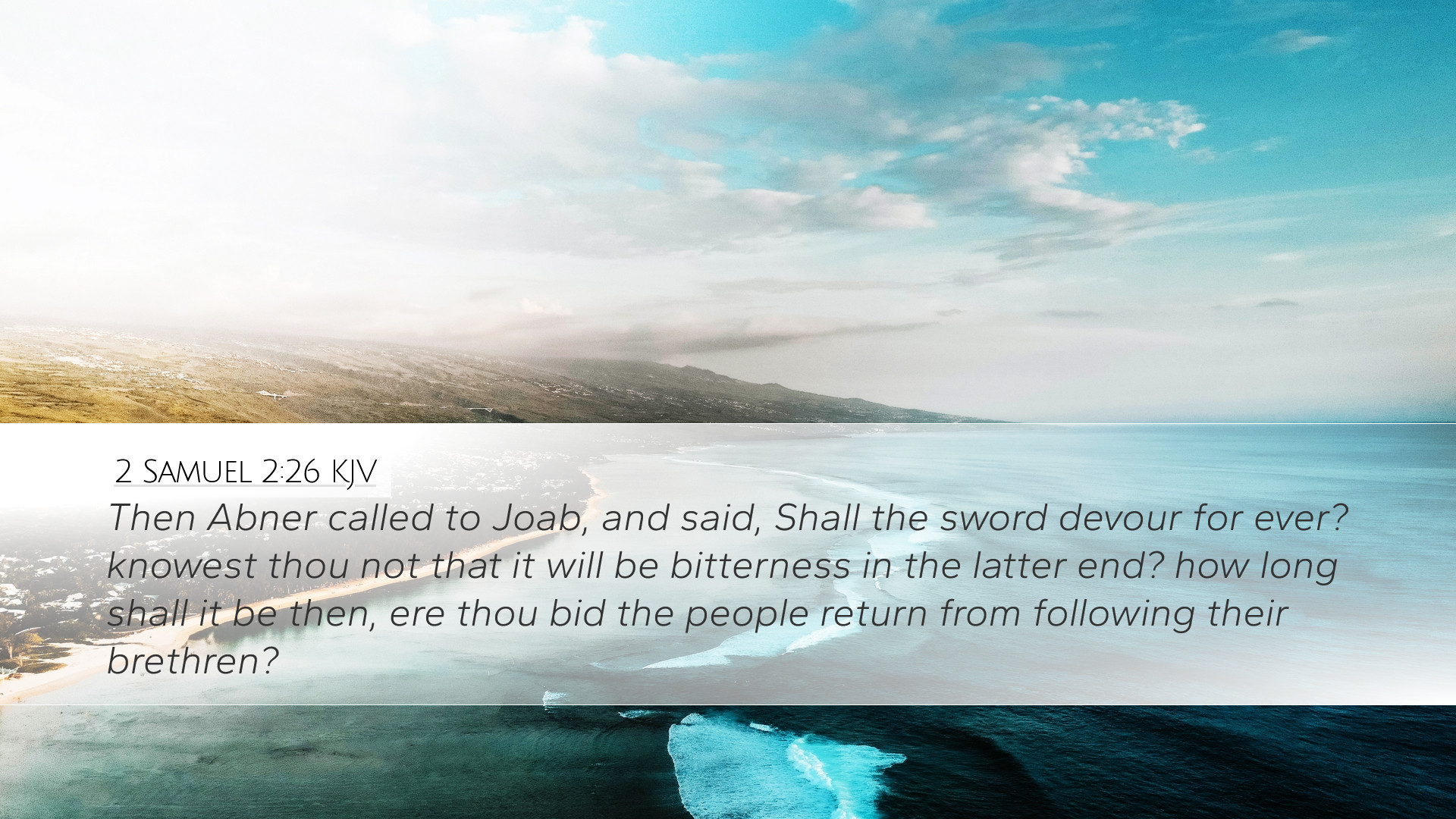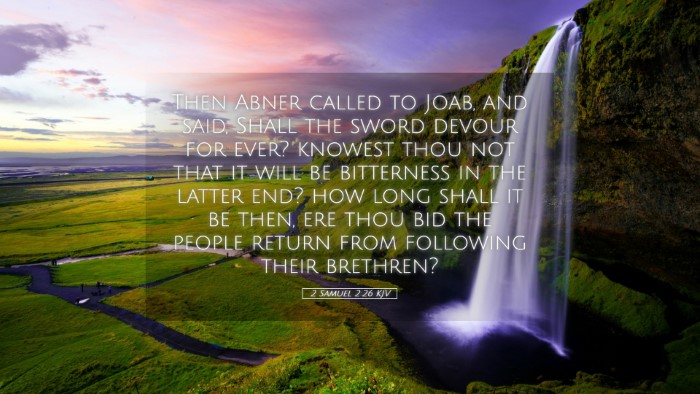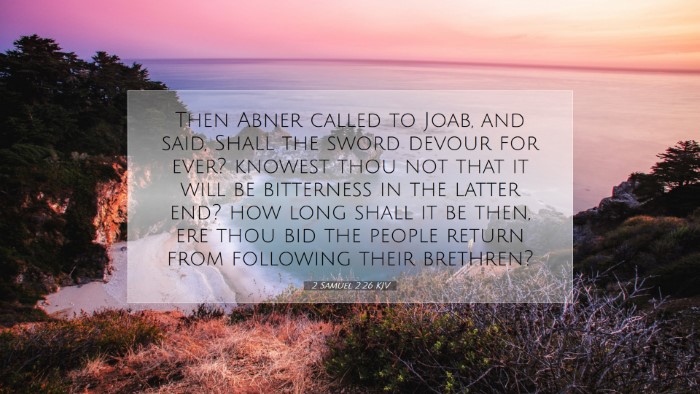Old Testament
Genesis Exodus Leviticus Numbers Deuteronomy Joshua Judges Ruth 1 Samuel 2 Samuel 1 Kings 2 Kings 1 Chronicles 2 Chronicles Ezra Nehemiah Esther Job Psalms Proverbs Ecclesiastes Song of Solomon Isaiah Jeremiah Lamentations Ezekiel Daniel Hosea Joel Amos Obadiah Jonah Micah Nahum Habakkuk Zephaniah Haggai Zechariah MalachiVerse
2 Samuel 2:1 2 Samuel 2:2 2 Samuel 2:3 2 Samuel 2:4 2 Samuel 2:5 2 Samuel 2:6 2 Samuel 2:7 2 Samuel 2:8 2 Samuel 2:9 2 Samuel 2:10 2 Samuel 2:11 2 Samuel 2:12 2 Samuel 2:13 2 Samuel 2:14 2 Samuel 2:15 2 Samuel 2:16 2 Samuel 2:17 2 Samuel 2:18 2 Samuel 2:19 2 Samuel 2:20 2 Samuel 2:21 2 Samuel 2:22 2 Samuel 2:23 2 Samuel 2:24 2 Samuel 2:25 2 Samuel 2:26 2 Samuel 2:27 2 Samuel 2:28 2 Samuel 2:29 2 Samuel 2:30 2 Samuel 2:31 2 Samuel 2:32

